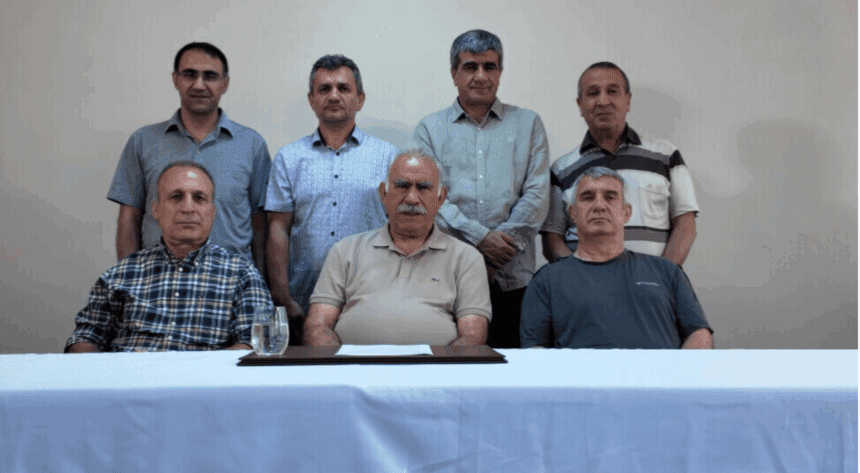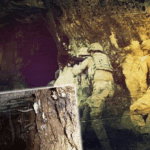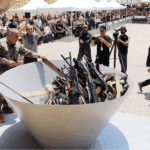In his first public appearance in over two decades, jailed Kurdistan Workers’ Party (PKK) leader Abdullah Öcalan said the militant group could swiftly lay down its arms, but emphasized that a robust Turkish political framework is essential to ensuring a peaceful transition to democratic politics.
Öcalan’s remarks came via a video message released Wednesday by the pro-Kurdish Fırat News Agency (ANF), just days before a scheduled weapons-laying ceremony in northern Iraq on Friday—marking the beginning of the PKK’s historic disarmament after a 40-year conflict that has claimed more than 40,000 lives.
“The details of the laying down of arms will be determined and implemented quickly,” said Öcalan, 76, from İmralı Island Prison, where he has been held since 1999. “Establishing a mechanism for disarmament will advance the process.”
Calling the shift a “voluntary transition from armed conflict to democratic politics and law,” Öcalan urged militants to embrace political means over violence.
“I believe in the power of politics and social peace, not weapons,” he declared. “And I urge you to put this principle into practice.”
First Public Appearance in 26 Years
The seven-minute video featured Öcalan seated alongside fellow İmralı inmates Hamili Yıldırım, Veysi Aktaş, Ergin Atabey, Mahmut Yamalak, Zeki Bayhan, and Ömer Hayri Konar, all of whom appeared to signal solidarity.
Öcalan reiterated his February call for the PKK to abandon its armed struggle, noting that the group had officially renounced its aim of establishing a Kurdish nation-state. “By abandoning this fundamental goal, it has also abandoned its fundamental war strategy,” he said.
Push for Parliamentary Oversight
A central demand of Öcalan’s message was the establishment of a parliamentary oversight commission. “The overall process of a voluntary laying down of arms and the comprehensive commission envisioned to be established … by the Turkish Grand National Assembly are crucial. Care and sensitivity are essential,” he stated.
He added that he has written a new manifesto for a “democratic society,” signaling a broader ideological shift within the PKK leadership.
The pro-Kurdish Peoples’ Equality and Democracy Party (DEM Party), which has facilitated contact between Öcalan and the Turkish government, submitted a proposal to form such a commission. A party spokesperson told AFP the body could be operational by mid-July.
Behind-the-Scenes Diplomacy
The pace of events has quickened. On Sunday, a DEM Party delegation visited Öcalan on İmralı Island. He reportedly told them that the parliamentary commission would be vital to the process’s success.
The next day, DEM lawmakers met for over an hour in Ankara with President Recep Tayyip Erdoğan and Turkish intelligence chief İbrahim Kalın to coordinate next steps. Kalın subsequently traveled to Baghdad for talks with Iraqi officials on logistical arrangements for the PKK’s disarmament, according to a senior Iraqi security official.
Returning from a summit in Azerbaijan, Erdoğan expressed cautious optimism:
“The process will gain a little more speed when the terrorist organization starts to implement its decision to lay down its arms,” he said.
A Turning Point for Kurdish-Turkish Relations?
Most PKK fighters have been based in the mountainous regions of northern Iraq for the past decade. The Friday ceremony marks the first formal step in the group’s disbandment.
If successful, observers believe the disarmament initiative could lay the groundwork for a new era of Kurdish inclusion in Turkish politics. Kurds make up about 20% of Turkey’s 85 million people and have long faced cultural and political marginalization.
While the road ahead remains uncertain, Öcalan’s reemergence and Ankara’s response suggest that, after decades of war, both sides may be inching closer to an enduring peace.



